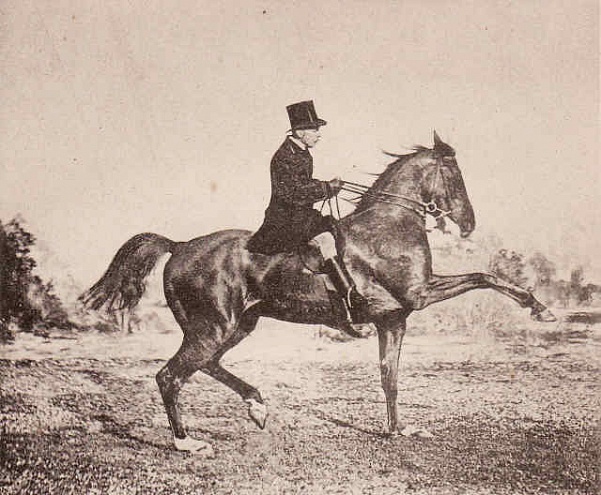James Fillis - world dressage titan
https://www.traditionrolex.com/42
https://www.traditionrolex.com/42

“The horse should be balanced and go easily while moving forward, so that the rider can reach the best effect through physical tension," wrote James Fillis, a great rider and trainer. He knew everything about horses.
Fillis wrote a stunning book Basics of dressage and of riding for which he is thanked by all horsemen over the world. He earned his reputation as a methodologist-innovator, masterfully combining the principles of circus riding and cavalry horsemanship in high dressage. By the way, he had worked with horses in a Paris circus for over 10 years. During that time he understood the rule of conduct for a rider: instant reaction and removal of disobedience of a horse.
James Fillis divided dressage into two stages. The first one is ordinary dressage when horses are taught to clearly obey the rider and perform basic commands. The second one is high dressage the main characteristics of which are clarity and artistry. It was the basis of managing a circus horse and later was used in the army. In 1897, the Phyllis system was already known around the whole world, and he moved to St. Petersburg where he settled in the Ciniselli 's Circus. His skill was appreciated by officers in the Cavalry Guards Regiment, and later James was invited to train cavalry horses. They say that even at the age of 70 years he managed to break in 3-4 horses a day and he was admired by the military.
Among the top class elements, his personal invention was the school gallop back on three legs. His book Basics of dressage and of riding got the highest popularity during the World War II when there was an acute need to restore the vitality of the cavalry for a short period of time. It was reprinted three times during that period.
Over 100 years passed since that book was written. During this time, dressage, of course, leaped forward in development. Fillis’s book remains the topic for discussion in terms of methods to influence an animal and dealing with its bad habits. Some disagrees with a master, some are still devoted fans of his work.
Author: Edition
https://www.traditionrolex.com/42








Comments (0)